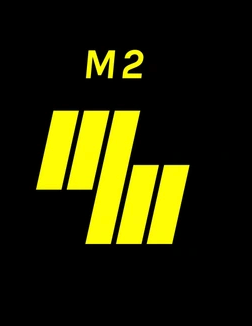the perfect amount of pressure matters when cleaning surfaces
Pressure washing is a versatile and effective method for cleaning a variety of surfaces, from home sidewalls to commercial buildings, sheet metal, concrete pavement, and pavers. However, it's essential to use the appropriate pressure to avoid damage and achieve optimal results. In this article, we'll discuss the recommended pressure levels for each of these surfaces to help you maintain their cleanliness and integrity.
1. Home Sidewalls:
Home sidewalls are typically made of materials like vinyl, wood, stucco, or brick. The recommended pressure for cleaning these surfaces varies:
- Vinyl siding: Use low to medium pressure, typically between 1,500 to 2,000 PSI (pounds per square inch), to prevent damage to the siding or forced water penetration.
- Wood siding: Keep the pressure low, around 1,000 to 1,200 PSI, to prevent splintering or gouging the wood.
- Stucco: Use medium pressure (around 1,500 PSI) but be cautious to avoid chipping or damaging the stucco's surface.
- Brick: Higher pressure, around 2,500 to 3,000 PSI, can be used, but be careful not to dislodge mortar or damage the bricks.
2. Commercial Building Walls:
Commercial building walls can be constructed from various materials, including concrete, metal, and masonry. The appropriate pressure depends on the surface:
- Concrete: Use medium to high pressure, around 2,500 to 3,000 PSI, to remove stubborn stains, but be cautious to avoid surface etching or damage.
- Metal (including sheet metal): Lower pressure, typically around 1,500 to 2,000 PSI, is suitable for cleaning metal surfaces without causing dents or warping.
- Masonry: Similar to brick, masonry walls can withstand higher pressure, around 2,500 to 3,000 PSI, but take care not to damage mortar joints.
3. Concrete Pavement:
- Concrete pavement, such as driveways and sidewalks, can accumulate dirt, stains, and mildew. Recommended pressure levels:
- Medium to high pressure, around 3,000 to 3,500 PSI, is suitable for most concrete surfaces, effectively removing dirt and stains.
- Avoid excessive pressure on concrete to prevent etching or surface damage, especially on older, weathered concrete.
4. Pavers:
- Pavers are often made from materials like concrete, brick, or stone and require care to avoid damage:
- Concrete pavers: Medium pressure, around 2,500 to 3,000 PSI, works well for removing dirt and grime without harming the pavers.
- Brick or stone pavers: Be cautious and use lower pressure, around 1,500 to 2,000 PSI, to prevent chipping or dislodging individual pavers.
Conclusion:
Choosing the right pressure level when pressure washing is crucial for achieving the desired results without causing damage. Whether you're cleaning home sidewalls, commercial building walls, sheet metal, concrete pavement, or pavers, it's essential to consider the surface material and its condition. Always start with lower pressure and gradually increase it as needed, keeping a safe distance from the surface. If you're unsure, consider consulting a professional pressure washing service to ensure your surfaces are cleaned effectively and without harm. Remember that using the appropriate pressure not only cleans but also preserves the integrity of your surfaces, extending their lifespan.
HASSLE FREE WINDOW CLEANING QUOTE
We believe in simplicity and efficiency. Just fill out our online form or give us a call, and we'll get back to you within 4 business hours. We provide a comprehensive, FREE, no-obligation quote, outlining our services tailored to your specific needs. No hidden fees, no surprises - just crystal-clear windows!
Sign up to our newsletter
Thank you for contacting us.
Matt or his crew will call you back within 4 hours of receiving this request.
Please try again later
All Rights Reserved | M2 Pressure Washing and Window Cleaning (2023)
Website design, optimized, and managed by Talents Into Profits

